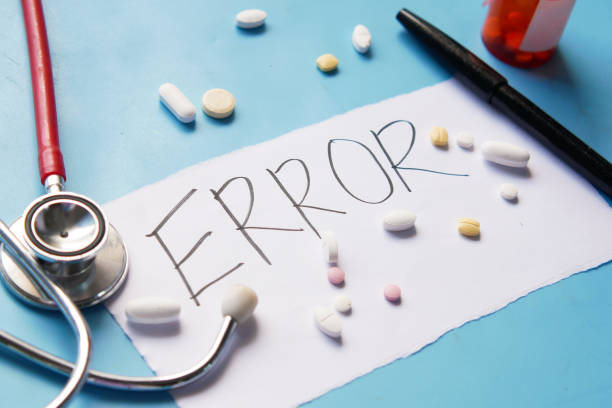Independent pharmacies in Oklahoma are helping patients reduce obesity-related health problems thanks to a new partnership between Pharmacy Providers of Oklahoma Inc. (PPOk), an organization that negotiates third-party contracts for independent pharmacies, and Ideal Protein, a weight-loss company. The new weight management program is in 16 pharmacies in the state.
How It Works
Ideal Protein combines a ketogenic diet with weekly counseling and education to help patients lose weight to reach their health and wellness goals. Patients receive weekly counseling with a trained coach, along with a specific meal plan and ongoing education about nutrition and healthy lifestyles. Patients can also purchase Ideal Protein products from the pharmacy, including branded foods that work within the protocol, meal replacement products, and specialized condiments.
“The main point to know about Ideal Protein is that it’s really based on education. That is our core value,” said Sara Mulero, Ideal Protein’s regional developing consultant for Oklahoma. She lost 340 pounds on the program. “And that it’s medically supervised, which sets us apart from everything else.”
The Ideal Protein regional consultant trains pharmacy employees to counsel patients on the program. Patients comen in once a week to weigh in, meet with coaches, and adjust their plans as needed.
Patient Results
Mulero said the program has produced tremendous results in clinics in the last several years. It will take some time to see the true outcomes within pharmacies since the partnership is in its early stages, but she’s already hearing success stories. “We’ve had several patients just in the last two months lose 25 pounds and get off some obesity-related healthcare medications,” she said. “So that’s life-changing for them.”
J.J. Peek, PharmD, quality assurance facilitator for RxSelect CPESN, said weight loss programs should “walk beside you,” offering ongoing support and accountability. And pharmacists are in a prime position to walk beside their patients. “We know that on average the patient sees their pharmacist 33 to 34 times per year versus their physician, which is just under four times per year,” he said.
Peek compares the program to a more familiar topic for independent community pharmacists: adherence.
“If a patient isn’t adherent when taking their medication, why do we expect them to be adherent to weight management?” he asked. “By partnering the two together, based on Ideal Protein’s structure and protocols that have been backed by research and literature, with the pharmacist’s ability to engage with the patient and encourage them and see adherence throughout the way, we felt that that was going to be a success. And we’ve seen that so far in the pharmacies that have implemented it.”
Business Results
The Ideal Protein program brings in revenue for independent pharmacies primarily through product sales. The coaching and education is free, but patients pay about $90 per week for the Ideal Protein products in the first phase of the protocol, which they purchase from the pharmacy.
The weekly patient meetings also bring in more foot traffic, which pharmacies hope will boost front-end sales. The program may also give new patients a reason to patronize pharmacies they’ve never visited before and could encourage patients to transfer their prescriptions from another pharmacy.
The only cost to the pharmacy is the Ideal Protein products, money that is then recouped when patients buy the products from the pharmacy. Ideal Protein’s training and educational resources are free.
The program also helps pharmacists position themselves as providers. The partnership is through the RxSelect CPESN, the Oklahoma organization within CPESN® USA, a clinically integrated network of community pharmacies providing enhanced services. RxSelect CPESN focuses on integrating pharmacists into healthcare teams in Oklahoma, leading to a greater share of healthcare dollars from the medical side and better health outcomes for patients.
“I think the biggest benefit is getting out that pharmacists can do more than what is portrayed in the public eye,” Peek said. “This whole program is non-dispensing, moving more into the realm of pharmacists providing services that impact patient outcomes. Not that dispensing is going away, but this is moving into an adjacent space that’s more geared to the medical side, where pharmacists should be recognized as medical providers and be adequately compensated.”
From the Magazine
This article was published in our quarterly print magazine, which covers relevant topics in greater depth featuring leading experts in the industry. Subscribe to receive the quarterly print issue in your mailbox. All registered independent pharmacies in the U.S. are eligible to receive a free subscription.
Read more articles from the March issue:
- How to make immunizations a pharmacy profit center
- How CPESN networks break pharmacies into the lucrative side of healthcare
- A classic retail tactic that boosts front-end sales
- Is pharmacist prescribing authority on the rise?
- This pharmacy dramatically expanded its business through telepharmacy
- How to hire the best people for your pharmacy
A Member-Owned Company Serving Independent Pharmacies
PBA Health is dedicated to helping independent pharmacies reach their full potential on the buy-side of their business. Founded and owned by pharmacists, PBA Health serves independent pharmacies with group purchasing services, wholesaler contract negotiations, proprietary purchasing tools, and more.
An HDA member, PBA Health operates its own NABP-accredited secondary wholesaler with more than 6,000 SKUs, including brands, generics, narcotics CII-CV, cold-storage products, and over-the-counter (OTC) products — offering the lowest prices in the secondary market.












